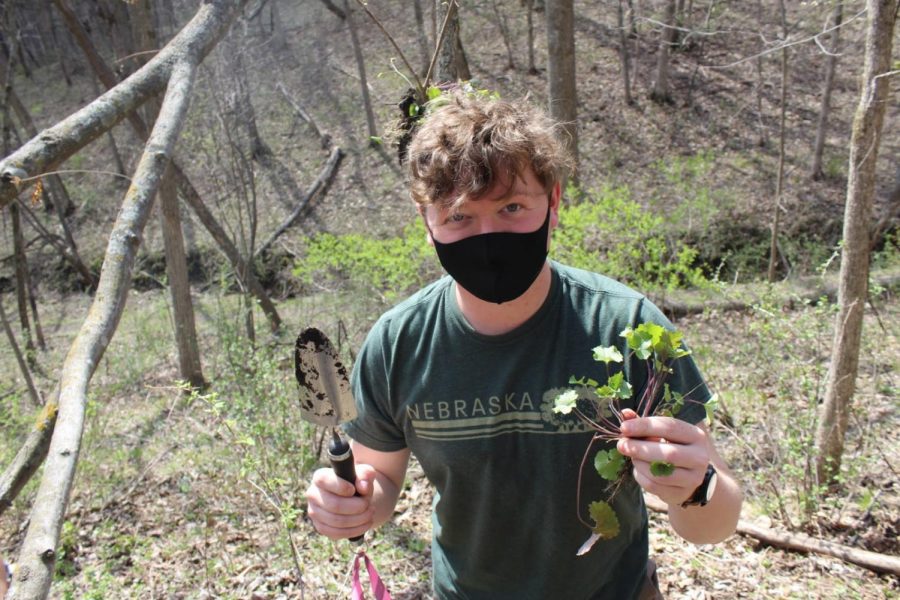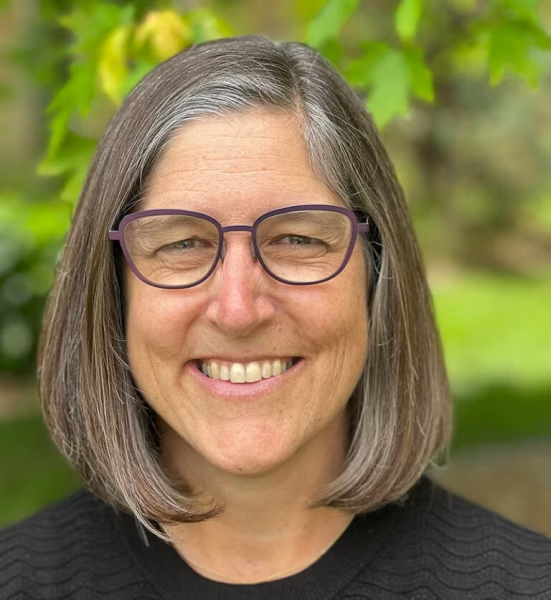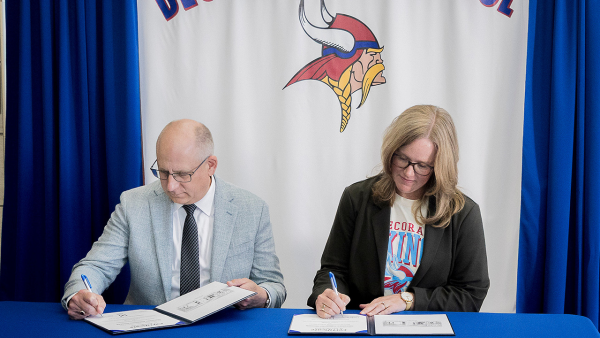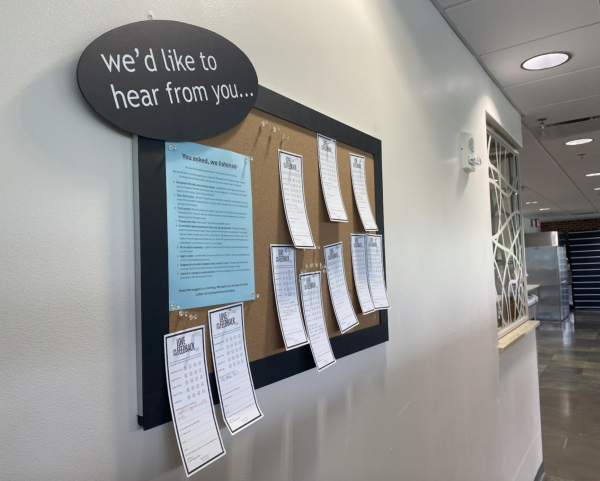Climate Justice Week kicks off with garlic mustard removal event
Payton Lott (‘23) holds garlic mustard after successfully removing it.
On Sunday April 18, Katie Fetting (‘21) and Peyton McClure (‘22) led an invasive species removal event in Hickory Ridge Woods to kick off Climate Justice Week. During the event, participants walked through Hickory Ridge until they came upon trees marked with pink and yellow tape, signifying where garlic mustard had begun to grow.
Fetting and McClure gave a brief presentation about garlic mustard, and the dangers it presents to native ecosystems, as well as how to properly remove it.
Garlic mustard is an invasive species in forests, wetlands, and savannahs. Mustards are used to sterilize the soil of fungi, which may be helpful in agriculture, but not in natural areas. Oaks and other species have a symbiotic relationship with the soil fungi, so the germination of garlic mustard can impede their growth. It also spreads quickly, which maximizes its impact once introduced to an area. Although it is not the most detrimental of all the invasive species, it is still harmful to the ecosystem.
“It’s not so much that we are saying invasives are bad and we are trying to get rid of them, but we are trying to get people out into Luther’s natural areas,” McClure said. “That’s not just our goal, but a lot of the events led by people in our class’s goal. Two of the guys were saying it was really relaxing, and they would like to do it again sometime. If they want to go on a hike in Hickory Ridge, it’s always available.”
After the presentation, each participant got a trowel to dig up the plant, making sure to get the entire root system so it does not regrow. As it is not prime reproductive season for garlic mustard, participants left the plants to dry out in tree branches above the ground. Participants were also pleasantly surprised to get a nice treat, as garlic mustard is edible.
“It’s good to connect people to conservation,” Fetting said. “I think sometimes people feel like only biology or environmental studies students know all about conservation, and it’s their thing, but conservation is everybody’s thing. Another goal of the event is for people to feel like they can be a part of something like this. It can be for everyone.”
Fetting and McClure are both students in the restoration and conservation biology class taught by Associate Professor of Biology and Natural Areas Manager Molly McNicoll. In this class, McNicoll assigned lab groups to host an event that promotes sustainability on campus in coordination with Climate Justice Week.
“The full title of the course is restoration and conservation biology, so when we are thinking about that, it’s how we restore the ecological health of communities,” McNicoll said. “From a biology standpoint, what we’re really looking at is what science we need to know, what theory we need to know in order to repair systems, protect species, protect biodiversity, and protect native diversity. A lot of times, what has been [the] classical idea [is] that we have the science piece, but the application piece is very separate.”
Creating a relationship between students and nature was the motivation behind this event. Students and professors in environmental studies wanted to make a push to bring learning from the classroom into the real world. With a strong community of students passionate about climate change, Luther is able to utilize various student volunteers from various disciplines, in addition to environmental study majors.
“The goal is to give students the comfort level of connecting [to] science,” McNicoll said. “What they are learning in the classroom [connects] to what they are doing on the ground.”
As well as focusing on ecology and applied science, the class touches on connecting environmental issues to humans, and helping students learn and teach others about an environmental issue. When assigning this project, McNicoll wanted students to focus on Luther-owned natural areas. This encouraged students to connect more with the nature surrounding them.
“I hope that they take away from the event that everyone can make a difference in terms of conservation biology and restoration ecology,” McNicoll said. “I think that’s the biggest thing for participants is that they can make a difference, and these events are a great way to build community, make new friends, and feel yourself empowered – that you can actually make a difference.”




